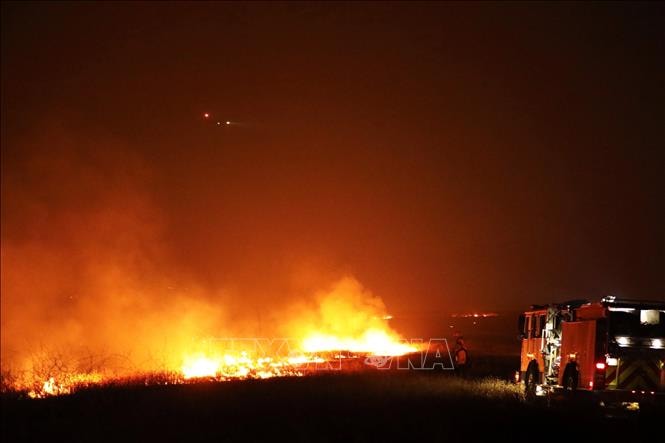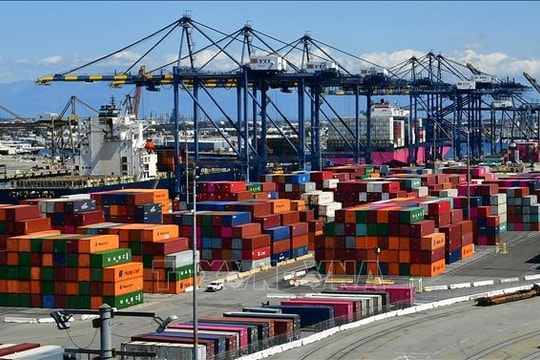US: Wildfire destroys historic 'Gold Rush' town
On September 3, the California Department of Forestry and Fire Protection (CalFire) said that a series of wildfires caused by lightning strikes are spreading through many areas in Northern California (USA), forcing local authorities to order widespread evacuations. One of the severely devastated locations is the town of Chinese Camp - a place with a strong historical mark from the "Gold Rush" period.

Twenty-two separate fires raged in an area about 100 miles east of San Francisco, burning nearly 11,000 acres, according to local officials.
The series of wildfires broke out after a storm moved through the area, with multiple lightning strikes hitting dry vegetation, causing the fires to spread rapidly.
The hardest hit was Chinese Camp, a remote town of roughly 100 people nestled in the western foothills of the Sierra Nevada. It was once a bustling mining community, established in the mid-19th century by thousands of Chinese immigrant laborers during the Gold Rush.
The fire destroyed two historic structures, including an old stagecoach stop and a cemetery on a hill.
Several other iconic structures escaped the flames, including the town's 170-year-old post office, one of the oldest Catholic churches in Central California, and the Chinese Camp Store and Tavern.
The entire town of Chinese Camp, along with several other communities in Tuolumne and Calaveras counties, remains under mandatory evacuation.
More than 600 firefighters were mobilized to control the fire. In addition, at least two temporary shelters were set up to receive evacuees, along with facilities to receive pets and livestock. Electrical engineering teams were also urgently deployed to restore the power system damaged by the fire that spread rapidly, burning down power lines, transformers and electric poles.
Wildfires are part of the natural ecological cycle in the American West. However, human activities, especially the excessive exploitation and use of fossil fuels, are rapidly changing the climate, making wildfires more frequent and more destructive./.





